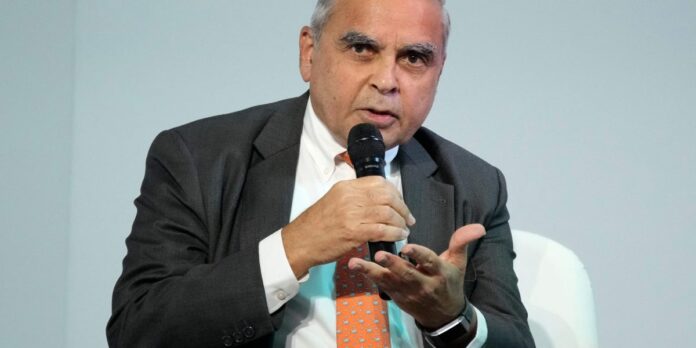Less than 24 hours from now, U.S. voters will be going to the polls for the pivotal political contest of 2024. Republican Donald Trump and Democrat Kamala Harris are offering contrasting policy agendas on U.S. relations with the rest of the world.
Kishore Mahbubani, a distinguished fellow at the National University of Singapore’s Asia Research Institute and a veteran diplomat from Singapore, expressed his belief that a Democratic victory would be more beneficial for geopolitical stability.
During a session with Clay Chandler, Fortune’s executive editor for Asia at the Insights Forum in Singapore, Mahbubani stated, “I hope that Kamala Harris wins. The world will be a calmer place.”
Mahbubani, who held various roles in Singapore’s foreign service for over 30 years, argued that a second term for Trump would struggle to address the significant changes in the global order.
Trump has proposed implementing a widespread 10-20% tariff on all goods entering the U.S. and has made controversial statements about not defending NATO allies against Russia and demanding more payment from Taiwan for U.S. protection.
However, Mahbubani acknowledged that ‘momentum is with Trump’
Mahbubani cautioned against underestimating Trump’s ability to win the election, noting that “momentum seems to be with [Trump].” Despite his criticisms, Mahbubani acknowledged that Trump was skilled at mobilizing support.
As Election Day approaches, polling averages show Trump and Harris with similar levels of support. Prediction markets also give Trump slightly better odds of winning, though forecasts have recently become more uncertain.
ASEAN in a U.S.-China rivalry
Both political parties in the U.S. agree on the need for imposing new economic sanctions on China, with Trump advocating for high tariffs and Democrats favoring targeted measures. These policies could have a significant impact on China’s economy, with potential repercussions for Southeast Asia.
Mahbubani warned against underestimating China, highlighting Beijing’s strategic investments in industries like robotics. He emphasized the importance for Southeast Asian countries to maintain unity and navigate the complexities of U.S.-China relations.
Strong leadership from figures like the Malaysian prime minister and the new Indonesian president could help ASEAN countries navigate the challenges posed by the U.S.-China rivalry.






